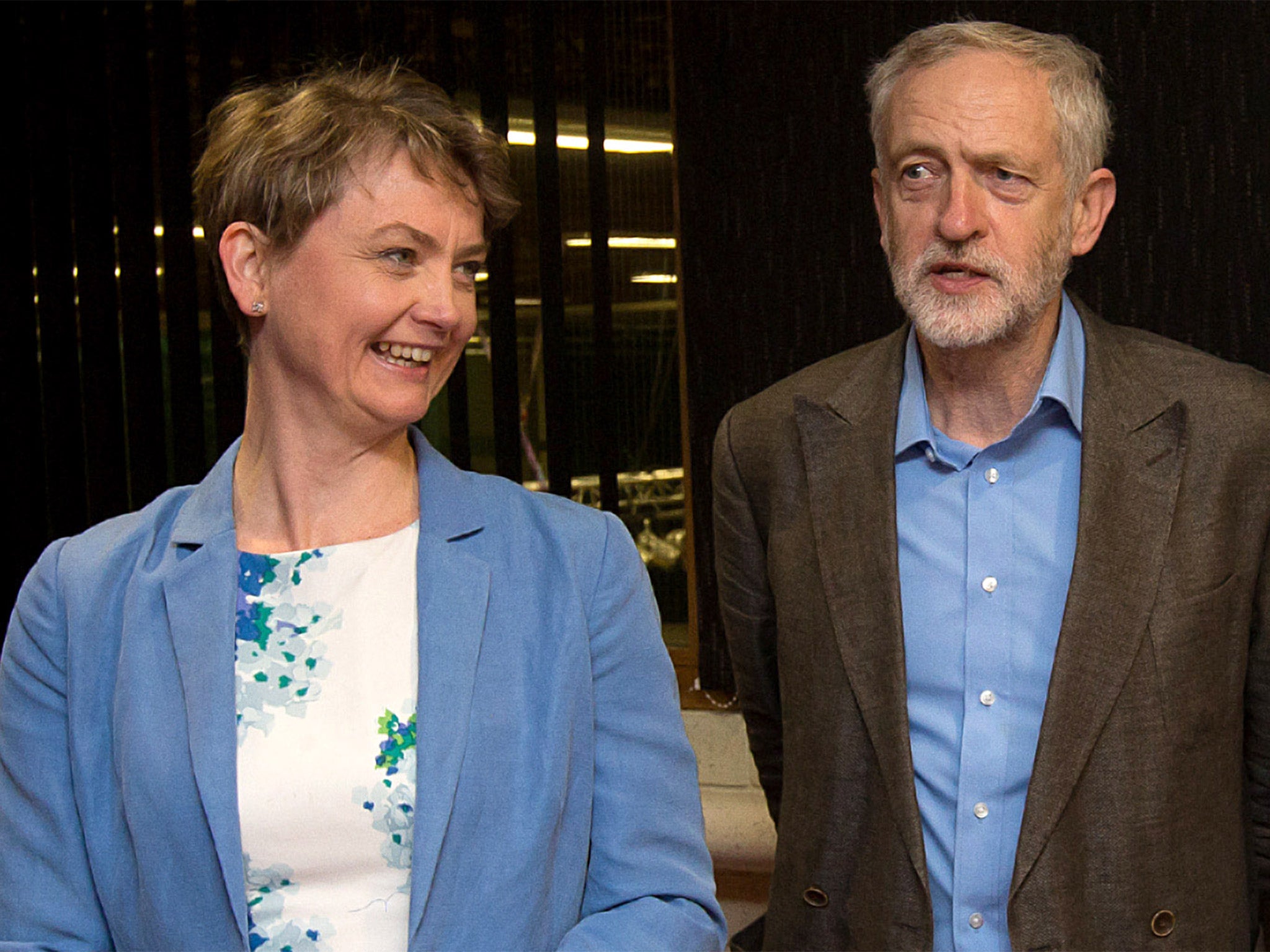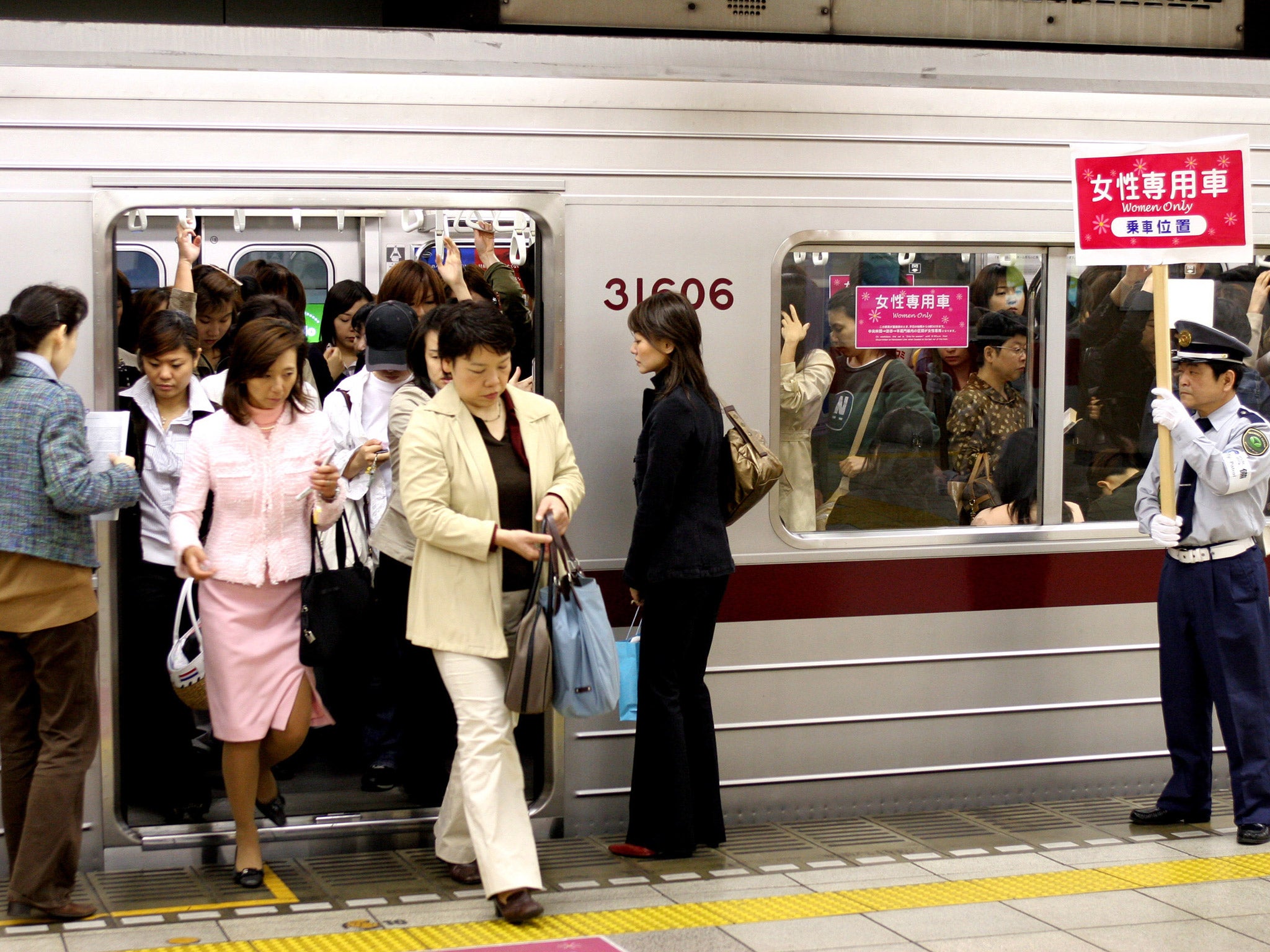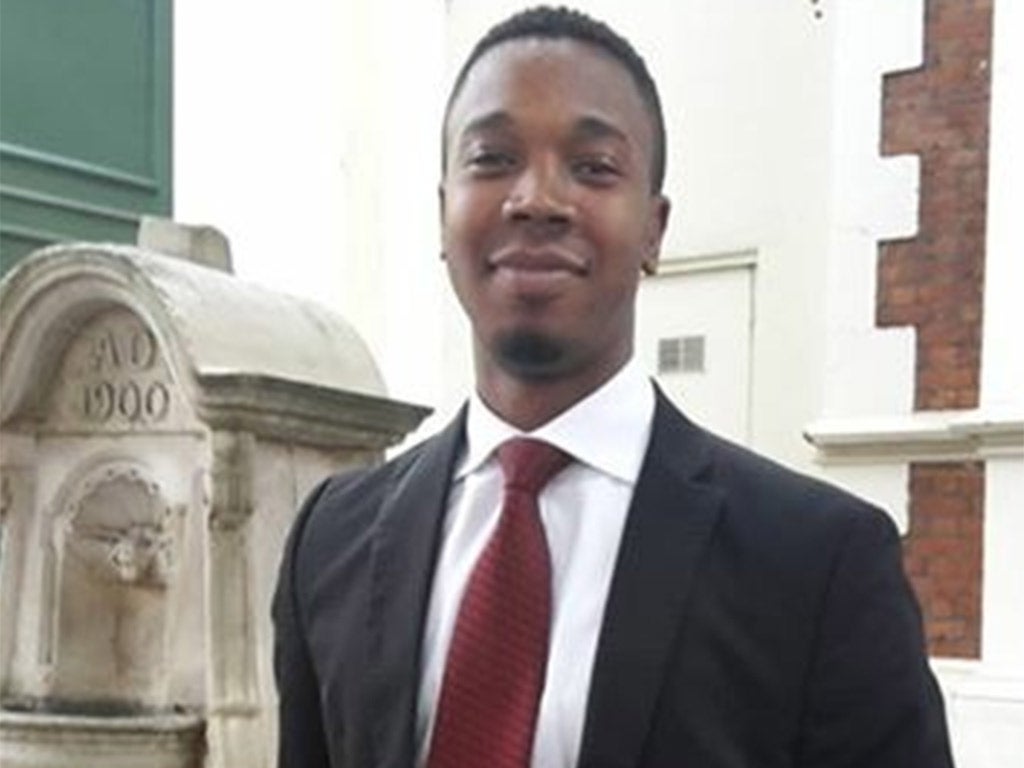Jeremy Corbyn's women-only train carriages ‘turn clock back’ on equality, says Yvette Cooper
Liz Kendall added it was an “admission of defeat”

Your support helps us to tell the story
From reproductive rights to climate change to Big Tech, The Independent is on the ground when the story is developing. Whether it's investigating the financials of Elon Musk's pro-Trump PAC or producing our latest documentary, 'The A Word', which shines a light on the American women fighting for reproductive rights, we know how important it is to parse out the facts from the messaging.
At such a critical moment in US history, we need reporters on the ground. Your donation allows us to keep sending journalists to speak to both sides of the story.
The Independent is trusted by Americans across the entire political spectrum. And unlike many other quality news outlets, we choose not to lock Americans out of our reporting and analysis with paywalls. We believe quality journalism should be available to everyone, paid for by those who can afford it.
Your support makes all the difference.Jeremy Corbyn’s female rivals for the Labour leadership have turned on his suggestion that women-only train carriages should be introduced at night to prevent sexual attacks.
Yvette Cooper, Labour’s shadow Home Secretary, said yesterday that the proposal “turned the clock back” on equality while failing to tackle the problems of harassment.
Liz Kendall said it was an “admission of defeat” and said she could never support gender segregation.
Their comments follow The Independent’s report yesterday that Mr Corbyn wanted to include a pilot of women-only carriages on night-time trains as part of his manifesto for the Labour leadership.
But many equality campaigners derided the plan, despite its use in other countries and evidence that sexual harassment and attacks are on the rise in Britain.
The number of sex offences on the railways increased to 1,399 last year, up from 1,117 the previous year, according to the British Transport Police.
Transport for London has begun a campaign to encourage more reporting of sex crimes on the capital’s Underground network, while transport police have a number of regional schemes designed to reduce harassment.
But the founder of the Everyday Sexism Project described women-only carriages as “a real step backwards”, while Unison, the union supporting Mr Corbyn’s leadership, distanced itself from the idea.
Unison general secretary Dave Prentis said: “Segregating women in transport would send the wrong message to those who think they can harass and abuse. It is more visible policing, better staffing at stations and on public transport and improved street lighting that can help women feel safer when travelling at night.”
Laura Bates, of the Everyday Sexism Project, said Mr Corbyn’s plan to consult with women was “the way forward”, but she was strongly against women-only train carriages.
“I think it would be a real step backwards,” she said. “It sends the message that harassment is inevitable, perpetrators are unable to help themselves and women should simply find a way round it.”
Last year rail minister Claire Perry indicated an interest in women-only carriages, which are in operation in Japan, India, Brazil and other countries. But following Mr Corbyn’s proposal she released a statement distancing herself from her previous comments.
“Experts and campaigners agree that segregation is not the solution,” she said. “Our approach focuses on catching and punishing offenders rather than segregating people and the raft of unintended consequences that would involve.”

The Tory MP Sarah Wollaston also voiced her opposition to women-only carriages. She tweeted: “Segregating women on public transport doesn’t protect anyone, it just normalises unacceptable attitudes.”
David Sidebottom, passenger director at independent watchdog Transport Focus, said: “Generally it is very safe to travel by train – almost eight in 10 passengers are satisfied with their personal security. Passengers tell us that they feel the best deterrent against crime is a visible staff and police presence on trains and at stations.”
Mr Corbyn said the idea came from talking to women who had been affected. Launching his street harassment policy, which also includes plans for more police resources to deal with harassment and sexual violence, he said: “Some women have raised with me that a solution to the rise in assault and harassment on public transport could be to introduce women-only carriages. My intention would be to make public transport safer for everyone from the train platform, to the bus stop, on the mode of transport itself.
“However, I would consult with women and open it up to hear their views on whether women-only carriages would be welcome – and also if piloting this at times and on modes of transport where harassment is reported most frequently would be of interest.”
Vox pop - The view from the Underground
Isabella Spencer, 20, from London, said: “Segregation fuels sexism. It should be the responsibility of men to behave properly.”
Simon Colman, 43, from Chesham, said: “It’s a good idea if women feel unsafe. I don’t think we should need it. It depends how they would police it.”
Sally Smith, 50, from Worcester, said: “They are a good idea. I would use a carriage only for women. It might even encourage me to use the train more.”

Robert Nkansah (above), from west London, said: “It’s a great idea. These guys are taking advantage of women. Partners would be happier that the women can get home safer in their own carriage.”
Estelle Sangiovanni, 26, from south-east London, said: “No I don’t think it’s a good idea. Women sexually assault males, too. There should be security put on trains if it is that much of an issue.”
Michelle Hindmarch, 52, from Cheltenham, said: “It’s a good idea. As a mother I am only bothered about the safety of my daughter. A woman-only carriage would give me one less thing to worry about. I know several people who have been assaulted.”
Join our commenting forum
Join thought-provoking conversations, follow other Independent readers and see their replies
Comments